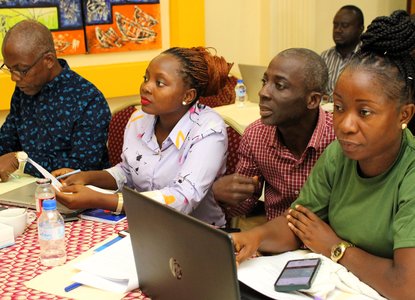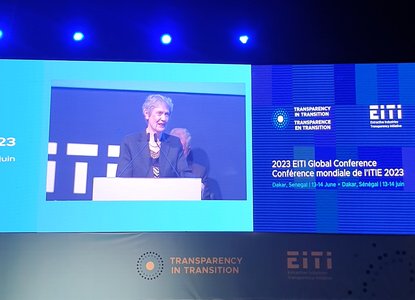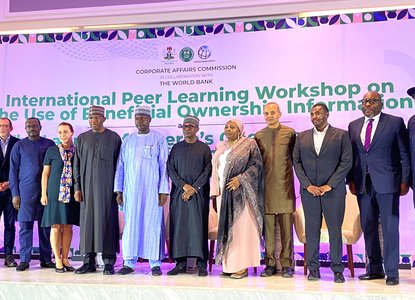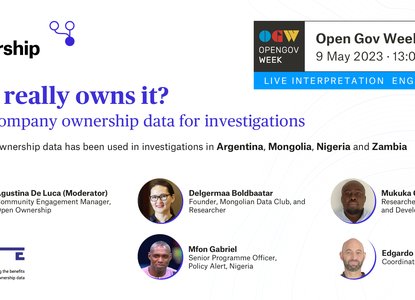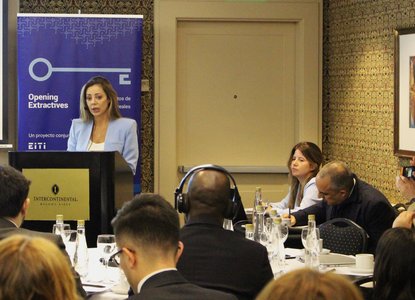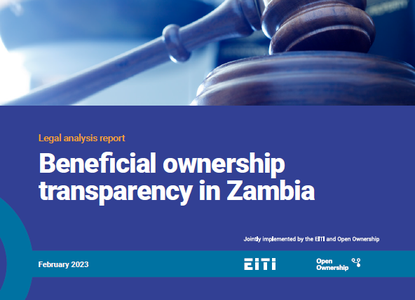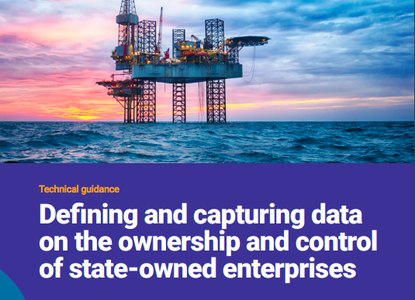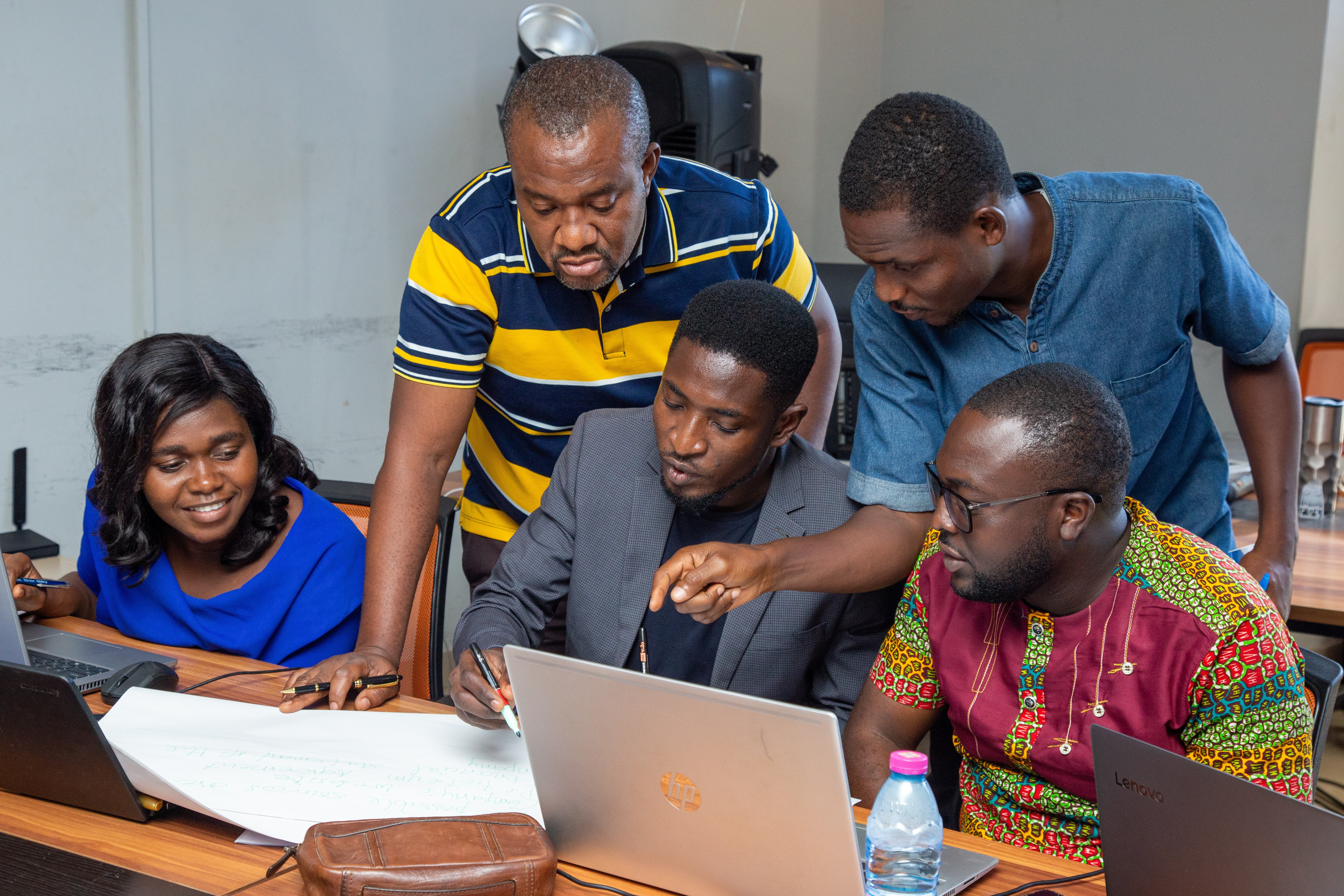
Photo: CSO and media representatives in Ghana are trained to use a beneficial ownership register. Source: Ghana EITI
Open Ownership (OO) and the Extractives Industry Transparency Initiative (EITI) International Secretariat have partnered to deliver Opening Extractives, an ambitious global programme to catalyse the availability and use of beneficial ownership data. The programme combines political and technical engagement with participating countries to implement reforms on beneficial ownership disclosure in the extractive sector. The programme is supported by the BHP Foundation.
| Argentina | Indonesia | Philippines |
| Armenia | Liberia | Senegal |
| Ecuador | Mongolia | Zambia |
| Ghana | Nigeria |
Anonymous companies remain the major obstacle in the fight against money laundering and corruption. They enable corrupt and criminal actors, often with close political connections, to hide behind chains of companies registered in multiple jurisdictions. Access to quality beneficial ownership data strengthens accountability by improving governance of energy and mining revenues, supporting business and curtailing corruption and illicit financial flows.
In this video, programme participants describe the support they are receiving through the Opening Extractives programme.
Scoping reports
Since the programme began we have released several scoping reports, which outline the state of play of beneficial ownership transparency in partner counties, and assess the country’s reform against the Open Ownership Principles.
And coming soon, are scoping reports for: Mongolia, Nigeria, and Zambia.
Why now?
As countries around the world face the dual challenges of climate change and the economic impact of the COVID-19 pandemic, sustainable governance of natural resources is becoming essential. Funds are urgently required to address healthcare, economic, and social needs arising from the pandemic. In resource-rich countries, the extractive sector makes a key contribution to tax revenue.
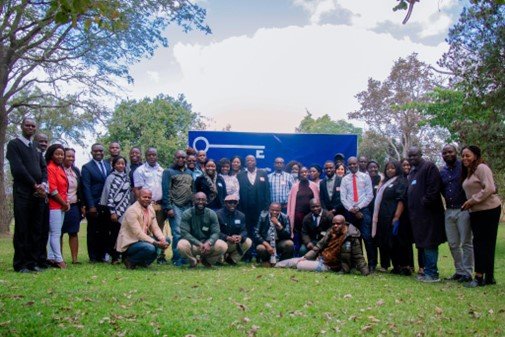
Photo: Participants, trainers and key speakers at a workshop on using beneficial ownership data in Zambia. Source: Zambia EITI
Research, resources and tools
Research by OO and EITI shows that there is both high demand for technical assistance to achieve beneficial ownership transparency, and a need for tailored support to address the complex dynamics that give rise to reform. We have so far published:
As well as two very handy checklists for implementers:
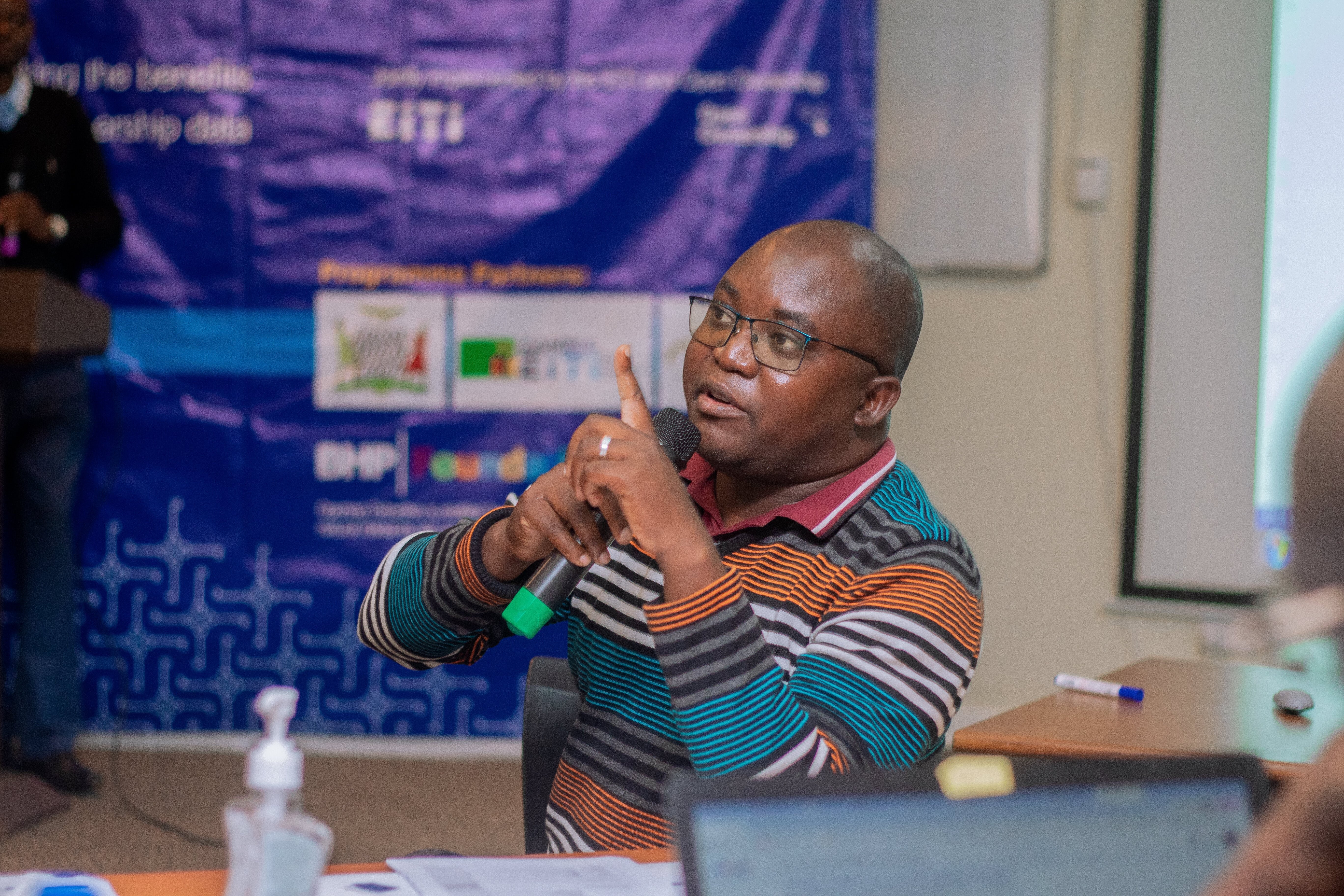
Photo: Sharing insights on ownership chains during the workshop. Source: Zambia EITI
Training
A key part of Opening Extractives is enabling the use of the data by governments, civil society, and companies. The programme aims to improve transparency on the beneficial owners of companies and increase the chances that revenue from extractives projects will be used for development, rather than the enrichment of the few. As such, training is integral. Read more about recent training programmes with civil society and journalist representatives in Armenia, Ghana and Zambia.
Our workshops, both in-person and online, are free. They help participants get the most out of beneficial ownership data and introduce participants to different data analysis tools.
Supporting data-use projects
Our experts and partners share methodologies and data analysis techniques to teach more people how to leverage the use of BO data. Journalists and civil society organisations then have new concepts and knowledge to embed in their work, and can include this type of data analysis in their investigations and projects. To continue to build the network of data users with expert insight on BO, the Opening Extractives programme has made two call-outs for investigative projects which we will support, and have recently sponsored 10 projects in different countries.
Ghana
- Foreign trawlers: Putting a spotlight on the activities of foreign fishing vessels on Ghana’s territorial waters and their impact on the local fishing business.
- Are mining support companies in Ghana submitting their beneficial ownership information?
- Who benefits from Eastern Region limestone quarry royalties?: Investigating the beneficial owners of Ghanian quarry firms in the Upper and Lower Manya Krobo Districts to ascertain potential conflict of interest, highlight royalties payment modalities, and determine the extent to which their operations affect the socio-economic status of the local communities.
- Beneficial ownership in the mining licence screening process: Investigating how Ghana’s Minerals Commission uses beneficial ownership information (or not) for their mining licenses award process.
Zambia
- Exploring beneficial owners from manganese mines in Luapula Province: Exploring whether the manganese mines dotted around Luapula province are legal, owned by politically exposed persons as alleged, and whether they are compliant with existing mining regulations and tax obligations or not.
- Enhancing beneficial ownership transparency in Zambia’s mining sector for enhanced domestic resource mobilization: Developing an online platform with information on key players in the mining sector and their taxation information, and raising awareness on the benefits of BOT through community radio and innovative social media content.
Mongolia
- Developing and publishing data analytical tool for journalists on state-owned mining enterprises’ procurement and expenditure: Updating an existing database with mining SOEs’ procurement and expenditure, and training journalists in using the platform and producing impact stories
Argentina
- Transparency in lithium extractive companies: This project aims to raise awareness about the importance of transparency in the lithium extractive sector in Argentina, investigate the ownership and management of lithium extractive companies, assess levels of application of the EITI Standard in the biggest exploitation area, and support an informed and quality debate about the impact of the energy transition for the country.
Nigeria
- #WetinWeGain3: Using beneficial ownership and extractive sector data to investigate corrupt practices in the oil swap deals: Looking into the beneficial owners of four oil and gas companies and their involvement in crude oil swap deals, and building the capacity of media and civil society organisations to be able to use and analyse existing BO data.
- Joining the dots: Creating a platform that enables cross-checking data on the beneficial owners of companies, politically exposed persons and companies holding extractive licences, to generate red flag alerts if any risks of conflict of interest and corruption are found.
A video introduction to the OE programme
Download our factsheet to learn more about the objectives and benefits of participating in the Opening Extractives programme (Español / Français).
